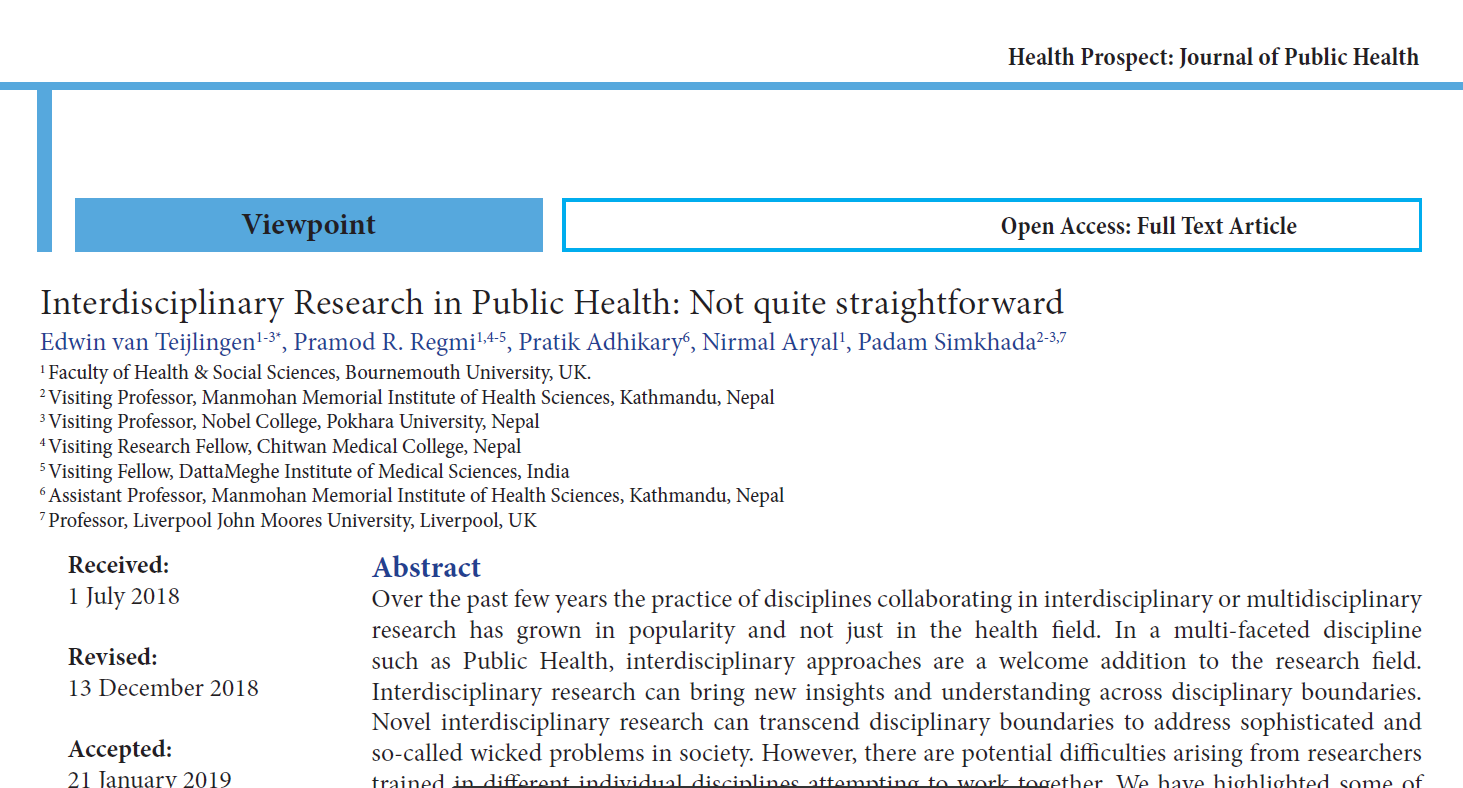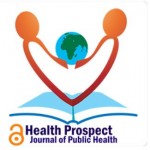 Over the past decades interdisciplinary or multidisciplinary research has grown in popularity. REF2021 promises that all types of research shall be assessed on a fair and equal basis, including interdisciplinary and collaborative research. New to REF 2021 compared to REF2014 is the Interdisciplinary Research Advisory Panel (IDAP) which has been established to advise the REF team and panel chairs on interdisciplinary research. Furthermore, REF2021 will: (1) appoint at least two members to specifically oversee the assessment of interdisciplinary research in each UoA (Unit of Assessment) to ensure equitable assessment; (2) allow universities to flag-up outputs in the submission system with an ‘interdisciplinary identifier’; and (3) require an discrete section in the environment template on the submitting UoA’s structures to support interdisciplinary research.
Over the past decades interdisciplinary or multidisciplinary research has grown in popularity. REF2021 promises that all types of research shall be assessed on a fair and equal basis, including interdisciplinary and collaborative research. New to REF 2021 compared to REF2014 is the Interdisciplinary Research Advisory Panel (IDAP) which has been established to advise the REF team and panel chairs on interdisciplinary research. Furthermore, REF2021 will: (1) appoint at least two members to specifically oversee the assessment of interdisciplinary research in each UoA (Unit of Assessment) to ensure equitable assessment; (2) allow universities to flag-up outputs in the submission system with an ‘interdisciplinary identifier’; and (3) require an discrete section in the environment template on the submitting UoA’s structures to support interdisciplinary research.
Many academics from all disciplines can at some point benefit from working with other scholars from other disciplines. Interdisciplinary research can bring new insights and understanding across disciplinary boundaries. Novel interdisciplinary research can transcend disciplinary boundaries to address sophisticated and so-called wicked problems in society. We would argue that some disciplines are more open to interdisciplinary approaches, and we would argue that the discipline of Public Health as a multi-faceted discipline is probably the most interdisciplinary of all.

Having decades of research experience between us we also recognize that there can be difficulties arising from researchers trained in different individual disciplines trying to work together. We have highlighted some of these issues which interdisciplinary research in Public Health needs to consider and, where necessary, address before they become barriers in an article published this month in Health Prospect [1]. In this Open Access article we remind the reader that doing interdisciplinary research is not an easy option. Interdisciplinary research may involve a mixed-methods approach and could be underpinned by conflicting, and according to some incommensurable, research philosophies.
We argue, for example that in an interdisciplinary team topic specialists face potentially challenging demands on their range of skills and knowledge. For example, sociologists are required to have a broad knowledge at hand to represent the social science perspective in a study of a disease they know little about, designed by clinicians with a health services research outcome in mind. We also suggest that Public Health researchers have to be versed in both qualitative and quantitative methods. Working multidisciplinary or interdisciplinary means that they have to be able to understand the methods of the epidemiologists (e.g. ‘interrupted -time series’ or ‘nested-case control studies’) and those of health service researchers (e.g. ‘double-blind randomised controlled trials’) and have the whole range of qualitative methods at your command to improve the quality of the overall study.
Prof. Edwin van Teijlingen, Dr. Pramod Regmi & Dr. Nirmal Aryal
(all based in the Faculty of Health & Social Sciences)
Dr. Pratik Adhikary &Prof. Padam Simkhada
(both BU Visiting Faculty)
Reference:
- van Teijlingen, E., Regmi, P., Adhikary, P., Aryal, N., Simkhada, P. (2019). Interdisciplinary Research in Public Health: Not quite straightforward. Health Prospect, 18(1), 4-7.





 In a week’s time I will have the great pleasure to open the School of Applied Sciences’ Postgraduate Research Conference. I was delighted that I was asked to give a keynote, not only because it is a nice way of making myself known to students, since I only arrived at BU in January, but also to share some thoughts about the way we do research. Whilst universities require some original research in the final year undergraduate dissertation, and to a much greater extent in Master’s programmes, it is at PhD level where we expect the clear evidence of intellectual independence, of playful recombination of knowledge, which will allow candidates to go beyond current established borders of thought, and to push scientific progress, something that is always happening at the fringes.
In a week’s time I will have the great pleasure to open the School of Applied Sciences’ Postgraduate Research Conference. I was delighted that I was asked to give a keynote, not only because it is a nice way of making myself known to students, since I only arrived at BU in January, but also to share some thoughts about the way we do research. Whilst universities require some original research in the final year undergraduate dissertation, and to a much greater extent in Master’s programmes, it is at PhD level where we expect the clear evidence of intellectual independence, of playful recombination of knowledge, which will allow candidates to go beyond current established borders of thought, and to push scientific progress, something that is always happening at the fringes.










 From Sustainable Research to Sustainable Research Lives: Reflections from the SPROUT Network Event
From Sustainable Research to Sustainable Research Lives: Reflections from the SPROUT Network Event REF Code of Practice consultation is open!
REF Code of Practice consultation is open! BU Leads AI-Driven Work Package in EU Horizon SUSHEAS Project
BU Leads AI-Driven Work Package in EU Horizon SUSHEAS Project ECR Funding Open Call: Research Culture & Community Grant – Apply now
ECR Funding Open Call: Research Culture & Community Grant – Apply now ECR Funding Open Call: Research Culture & Community Grant – Application Deadline Friday 12 December
ECR Funding Open Call: Research Culture & Community Grant – Application Deadline Friday 12 December MSCA Postdoctoral Fellowships 2025 Call
MSCA Postdoctoral Fellowships 2025 Call ERC Advanced Grant 2025 Webinar
ERC Advanced Grant 2025 Webinar Update on UKRO services
Update on UKRO services European research project exploring use of ‘virtual twins’ to better manage metabolic associated fatty liver disease
European research project exploring use of ‘virtual twins’ to better manage metabolic associated fatty liver disease